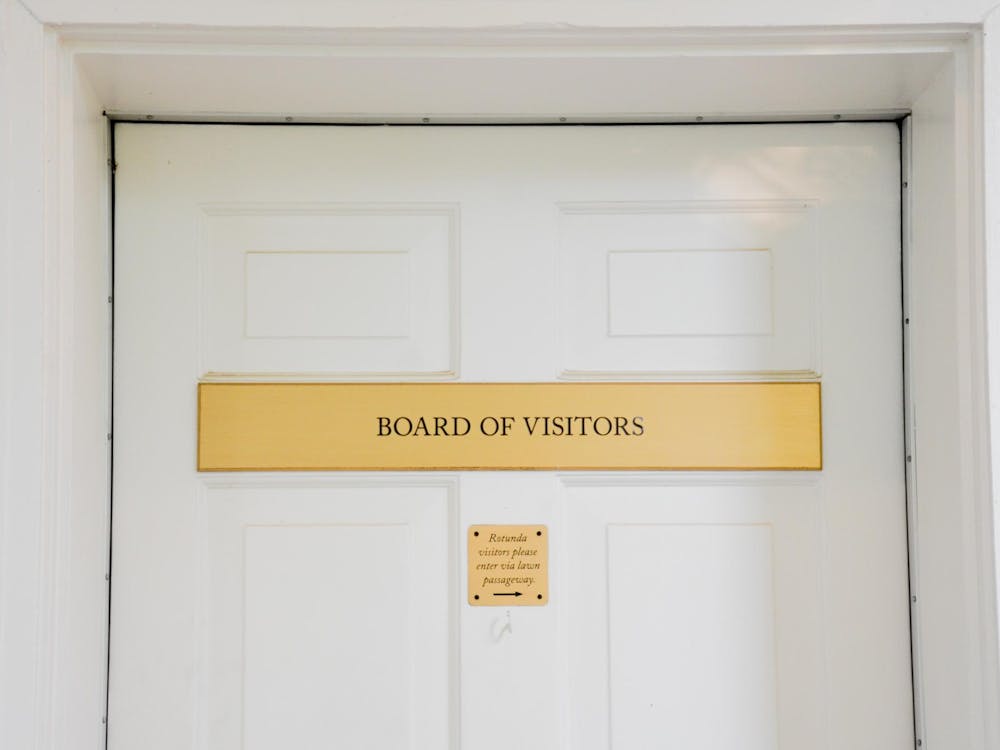They are the patients no medical doctor wants to meddle with.
The worried mother who claims her daughter saw the man who built their house 100 years ago.
Or the patient who distinctly remembers a nurse with pink shoelaces resuscitating his half-dead body as he hovered over his bed.
They are the patients who will give you a deadpan look and exclaim, "No, I didn't watch this on the X-Files last week. I really saw my dead mother."
This is the story of the only doctors who will listen to them.
The quaint tan-colored two-story house on 1308 Wertland St. is home to the Division of Personality Studies, the only office of its kind at the University and one of only a handful of places in the nation that studies near-death and out-of-body experiences, deathbed visions, apparitions and children who remember previous lives.
According to Dr. Emily Kelly, a psychologist at the division, its specific task is to "focus on anything that suggests survival after death."
For Dr. Bruce Greyson, one of the foremost world experts on near-death experiences and a professor of psychiatric medicine at the division, this means he has the gargantuan task of finding evidence for the looming question, "Is there life after death?"
It's not a laughable or even an unreasonable thing. In fact, Greyson says theories suggest that having a near-death experience can be quite common.
"It's sort of like losing track when you're driving your car, your mind wandering off. Near-death experiences may be a mild version of a dissociative state," Greyson said.
Dissociation is a mental process where people experience a lack of connection in their memories, feelings, actions or sense of identity. People in trauma often recall a temporary mental escape from the fear and pain of the trauma and sometimes have a memory lapse.
Greyson's latest project, which alrea0dy has made national headlines, involves corroborating the accounts of patients who claimed to have hovered over their beds - often as doctors attempt to resuscitate their bodies.
Since many near-death experiences have involved hovering, Greyson hypothesizes that placing a randomly generated computer image that only a hovering being could see would provide evidence for the existence of such events. If people genuinely were having out-of-body experiences and hovering over their own bodies, they would see the images on the wall and Greyson would have proof of the phenomenon.
Kelly says this also might be evidence of extra-sensory perception (ESP), since seeing the hidden image just might mean having that extra sixth sense.
"That's the puzzle of it. It's not the eyes," Kelly said.
The project still is in its early stages, with only a grant proposal to its credit. But Greyson and Kelly are confident that this project will answer at least some of their questions about the possibility of life after death.
"If we can understand how this works, maybe we can understand ourselves better," Greyson said.
Greyson's project is just one example of this division's rather unorthodox research methods. While most researchers in this field would rely on laboratory work and experiments to find evidence for these phenomena, this office operates a little differently.
According to Dr. Jim Tucker, a national expert on reincarnation accounts in children and an assistant professor of psychiatric medicine at the division, their office tends to focus on the spontaneous first-person accounts of patients who claim to have seen the "other side."
For Tucker, this means talking to parents around the world who claim their children lived previous lives and then trying to corroborate their accounts.
"They may give the name of a village a far distance away. And they might say, 'I lived in such and such a place and I died when a bus ran over me'," Tucker said.
Most of his cases come from Asia, but his latest project involves testing young American children for evidence of this phenomena.
Tucker and the other researchers in the division admit that having an eccentric title like "foremost expert on near-death experiences" has drawn more skepticism than praise. But Tucker says the rest of the world is just rejecting the supernatural phenomena too easily.
"A lot of doctors tend to dismiss the idea," Tucker chuckled. "But it's a field worthy of more research."
Though the office does not expect any hard conclusions soon, Kelly says that having a place like this can sometimes be reassuring and cathartic for patients. Many patients who have had these experiences have said this was the first time they've said a word.
"They don't often tell people about it. That's why it's helpful to have an office like ours. Because we're doctors who actually listen to them," Kelly said.






